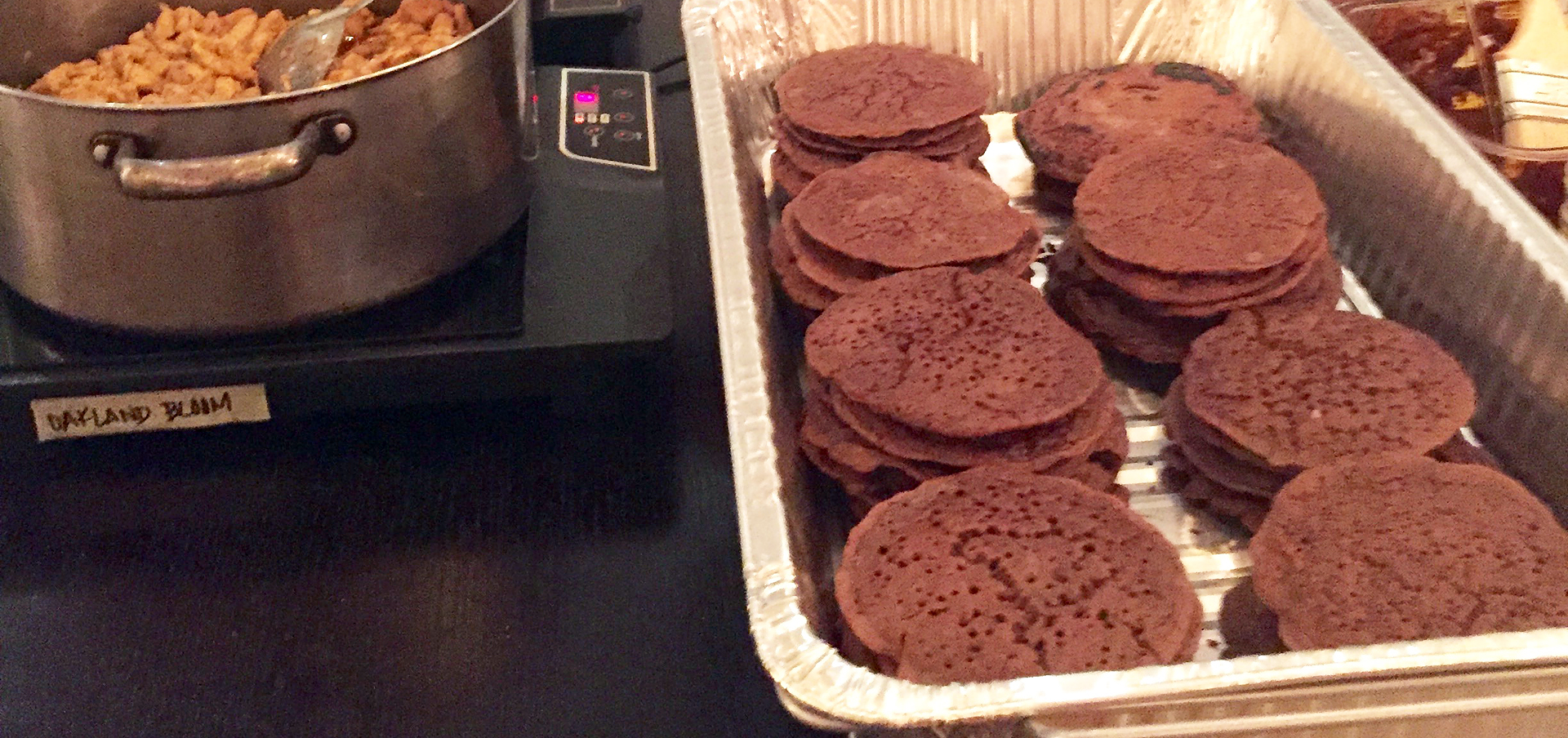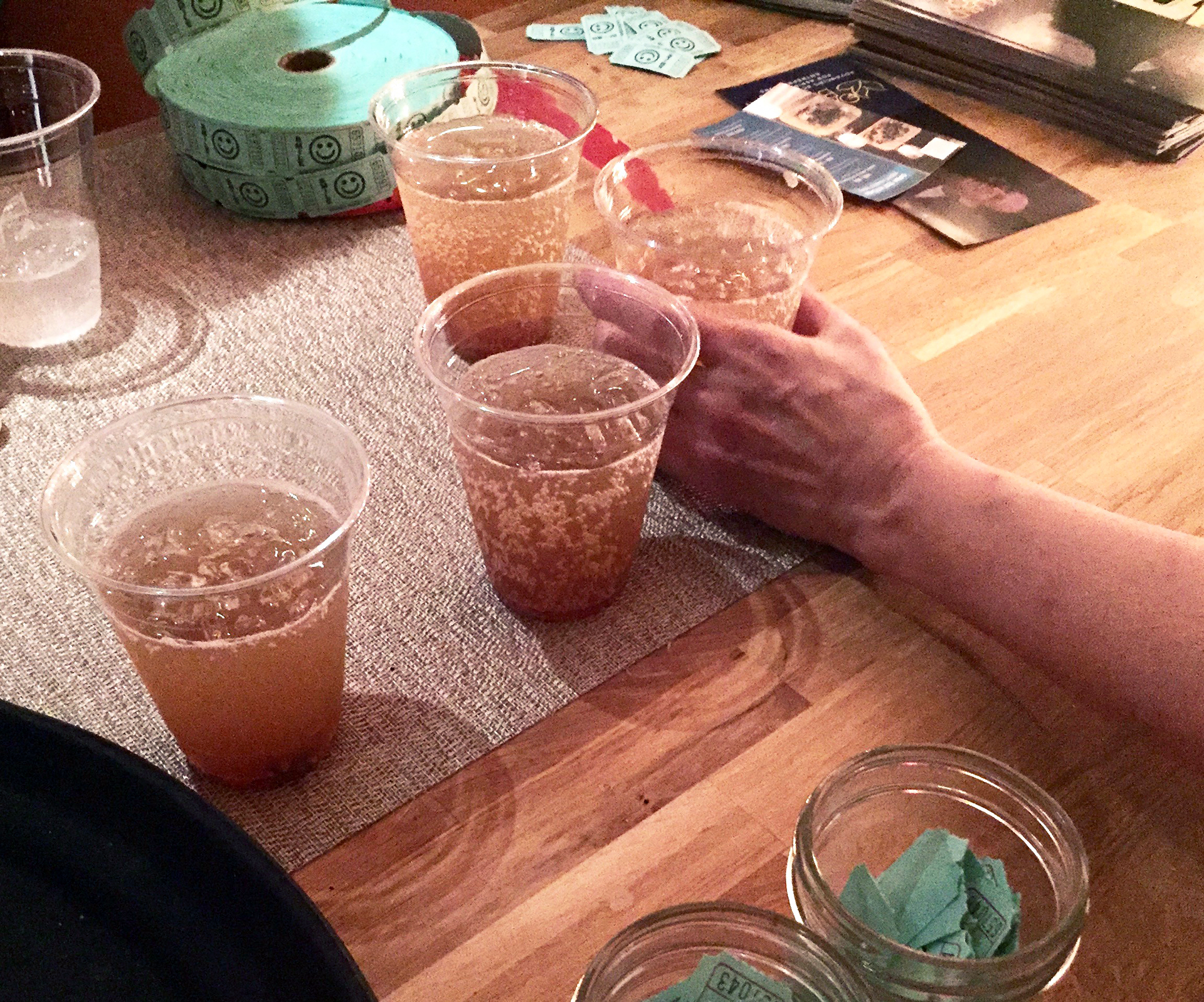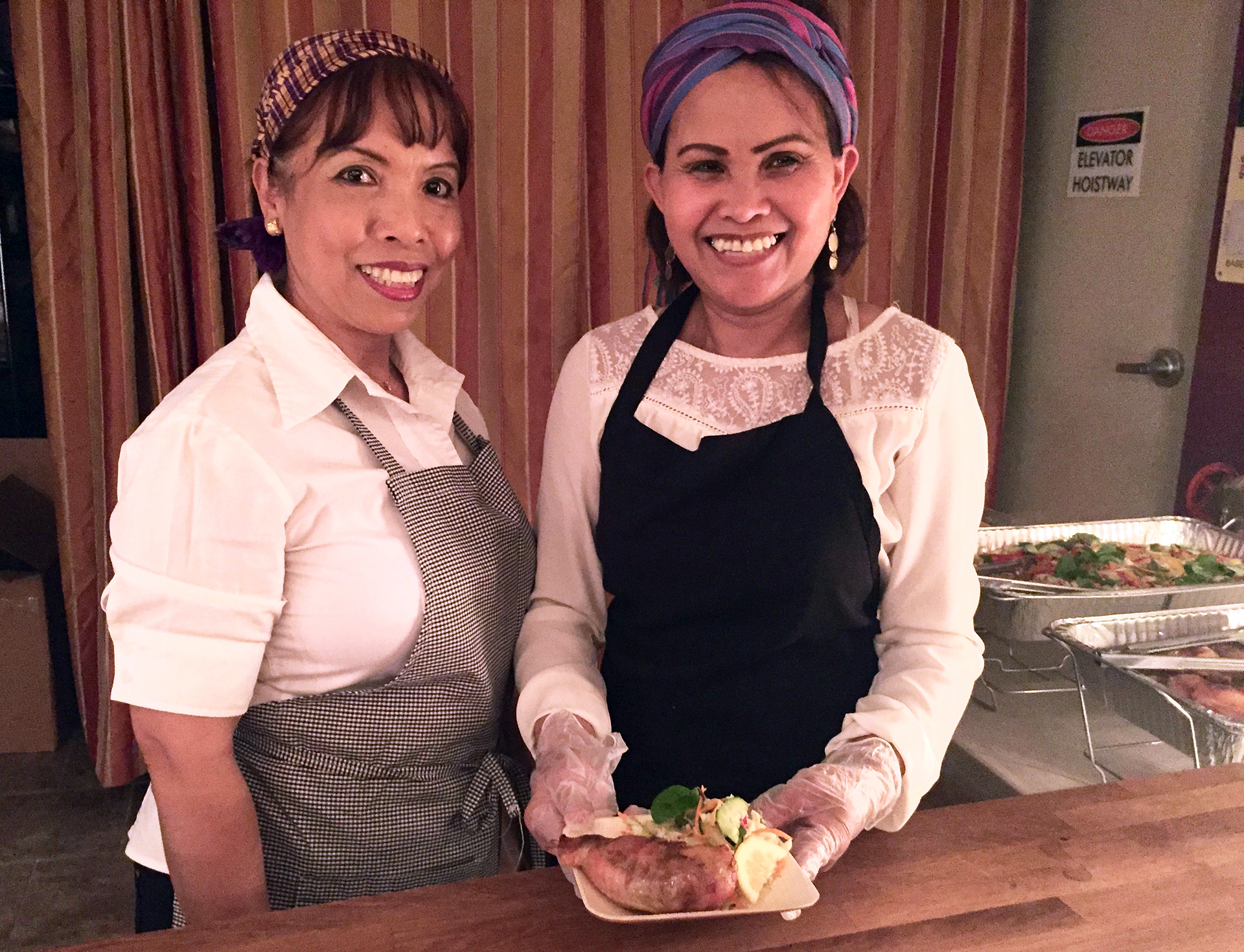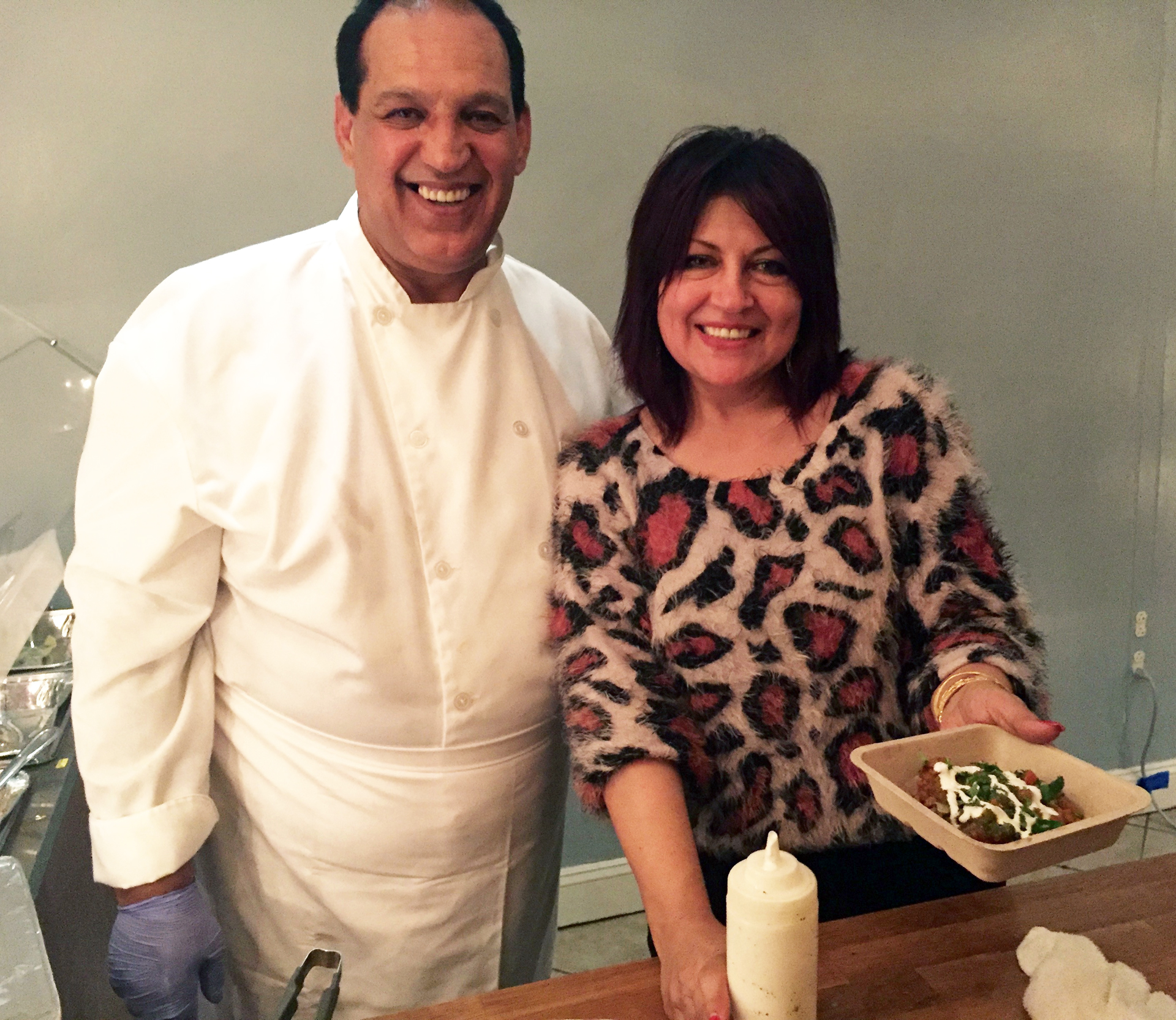
Farid Rafaty dreams of opening a restaurant where he will cook dishes from his native Afghanistan. One of these would be the luscious mantu dumplings he recently made for a pop-up dinner sponsored by Oakland Bloom, an organization that wants to help him in his quest. It’s been a long journey. At age 14, Rafaty was walking home after getting a haircut when he was forcibly drafted by the pro-communist government as a soldier to fight against the Mujahideen and taken by helicopter to their army base. After spending three weeks trying to operate an anti-aircraft missile launcher, the determined young man escaped from the base and fled his country by walking all the way to Pakistan, where he eventually met up with his parents and eight siblings.
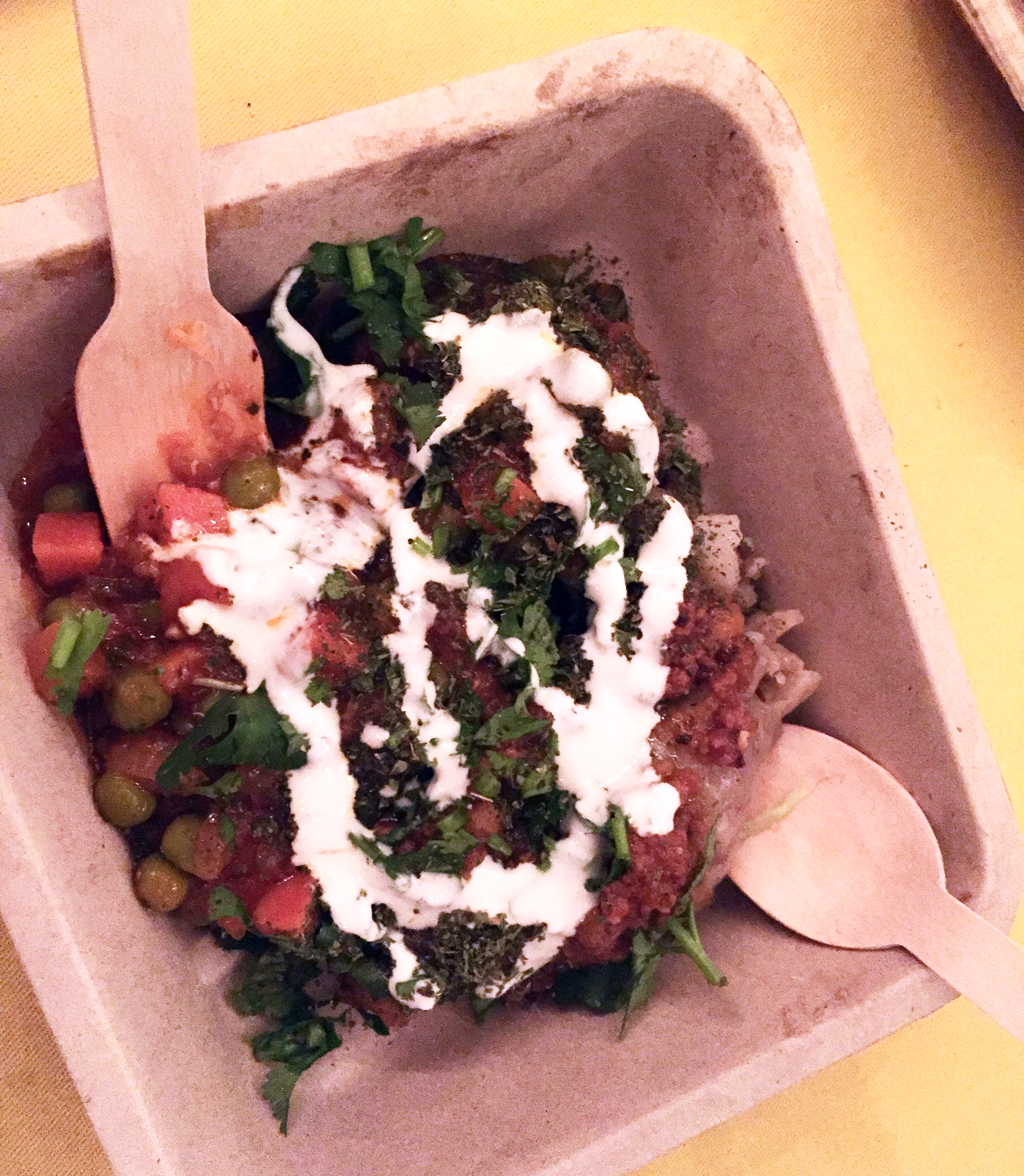
After several years living in France, Rafaty moved to Southern California, and ironically, got his wish to cook authentic Afghan food -- for the U.S. Marine Corps training site in Twentynine Palms. The army had built a completely realistic Afghan town in the middle of the Mojave desert to train Marines before they were deployed to Afghanistan. “It had to be 100% accurate, from the shops to the colors of the clothing to the food,” explains Rafaty. “I was head of kitchen and cooked breakfast, lunch and dinner for 220 Afghan ‘actors’ and 40 Special Forces soldiers.” Sometimes Rafaty was also assigned to act a role, such as head of the Secret Service, in exercises where American soldiers were tasked with finding “the bad guys.” The results were impressive. After a month living in the simulated Afghan village, the soldiers were ready. “I received many commendations, and the soldiers expressed their gratitude for preparing them so well, which was crucial to their survival,” says Rafaty. “Now, I want to give back to this wonderful country.” With Oakland Bloom’s help, Rafaty hopes to start a catering business and work his way up to a café where he can make real connections with his customers. “I want a place,“ he says, “where we all know each other’s families.”
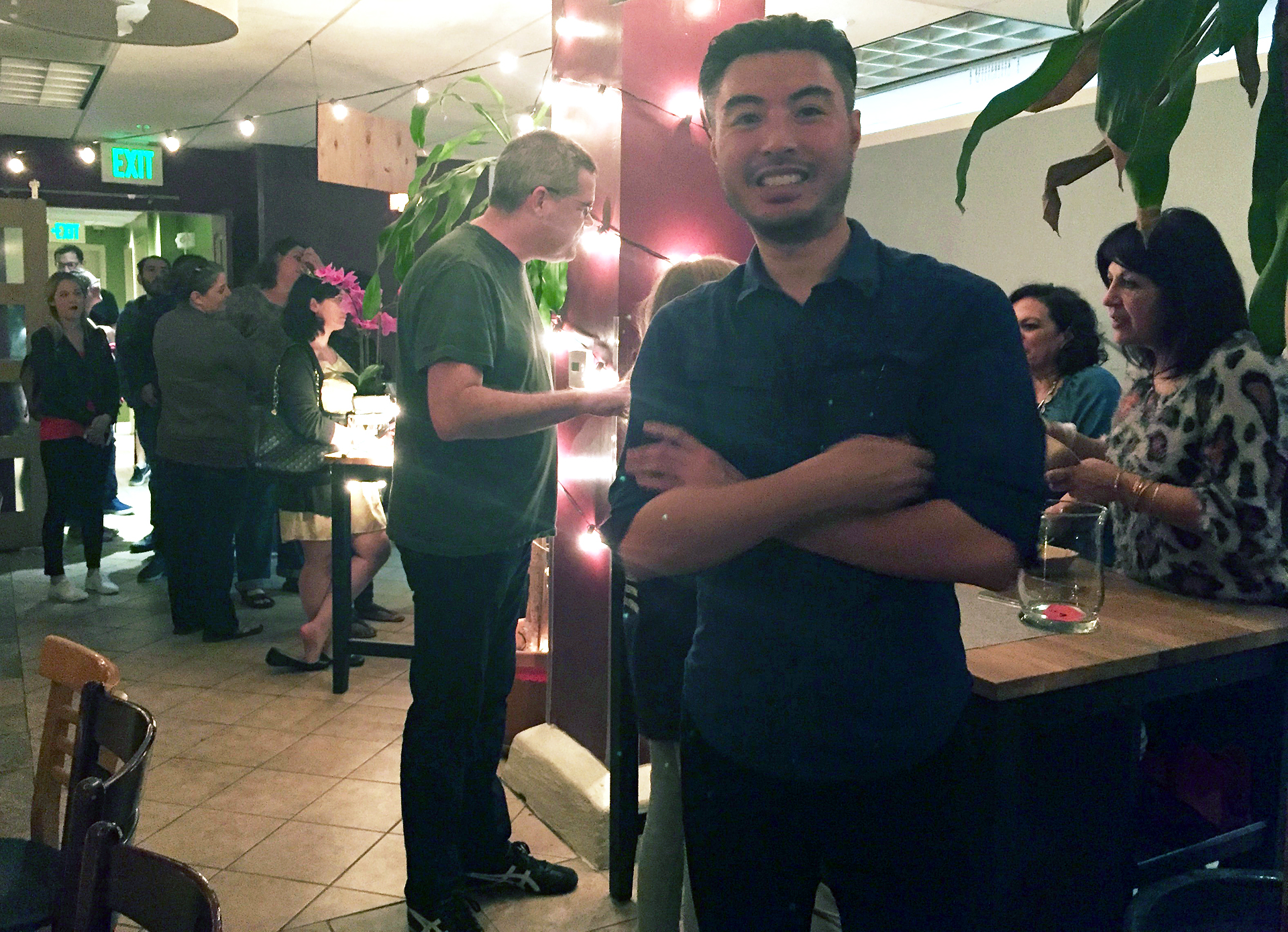
Not all the refugees that Oakland Bloom mentors have as much food service experience as Farid Rafaty. Indeed, some have none at all. But the most important quality that Oakland Bloom founder Seanathan Chow looks for when choosing people for the training program is a love of cooking. After several years working to foster social entrepreneurialism as a start-up consultant and volunteering in a variety of non-profits, Chow switched gears to attend culinary school and then cook at Hawker Fare and Nopalito.
His “aha moment” came when he realized he could pair food and social impact to create economic opportunities for refugees and immigrants looking to start their own businesses. He founded Oakland Bloom in 2015. Now, he and his team run an intense two-week training program where refugees receive instruction in running a food business, operating a commercial kitchen, marketing, and testing recipes, all leading up to the Night Market, where they cook and serve their dishes to more than 100 guests.
These pop-up dinners, held monthly in the basement dining room of Oakland’s Clarion Hotel, give the emerging chefs an opportunity to handle a steady stream of customers and engage in conversation with them. Chow is still refining the structure and learning from each event. At the second dinner on March 12, he was dismayed to find that by the time the last two ticketed customers appeared, a couple of the chefs had run out of food. “It was a learning experience for us all,” says Chow, “I want to improve these events each time and use them as a testing ground for a permanent space.”
